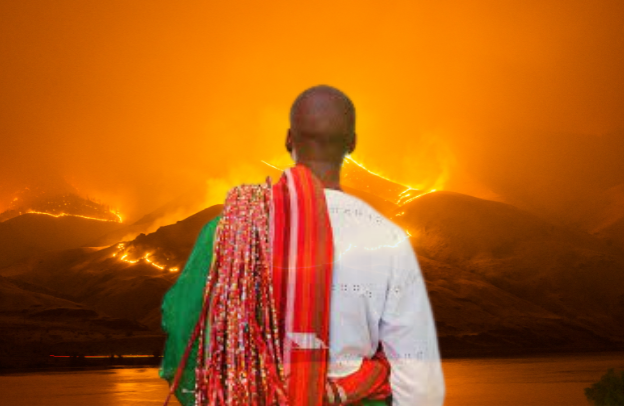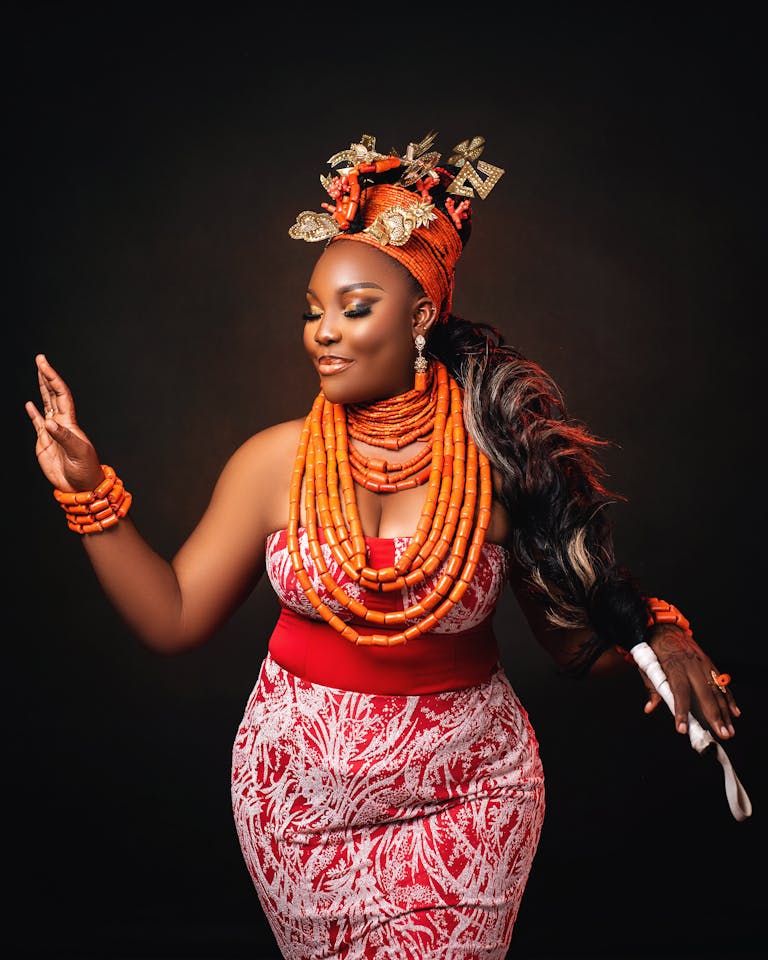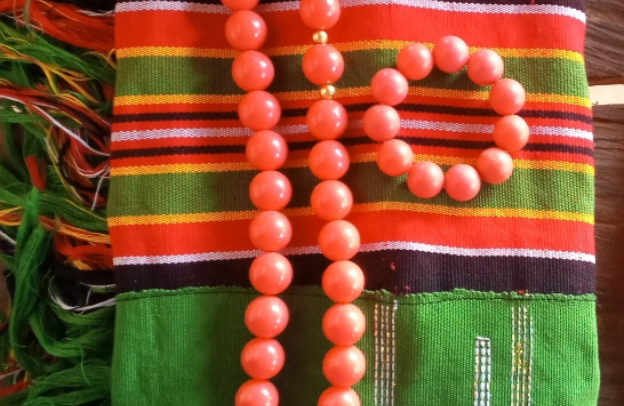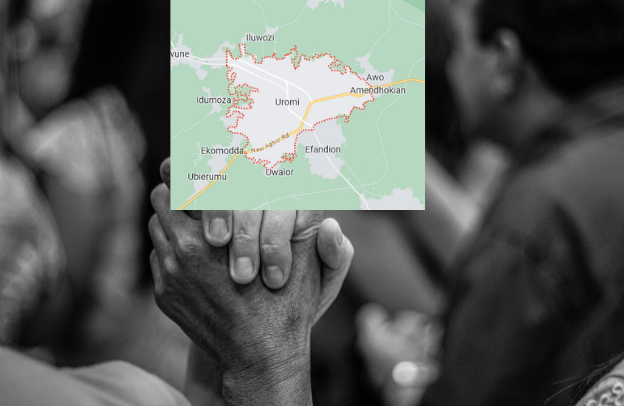The Life and legacy of Ogbidi Okojie (King of Uromi, Nigeria)
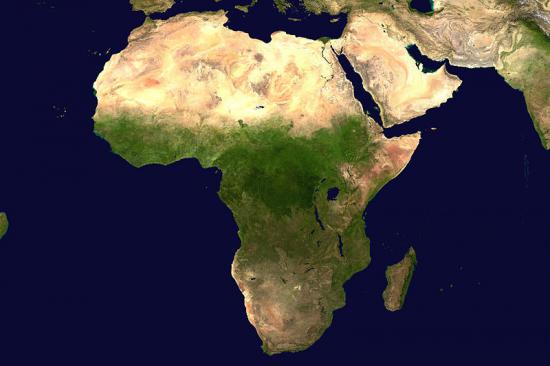
Africa’s monarchical system and culture prompt the strong belief and veneration of African rulers as gods (Osenebra and Chi) in most places. These stiff beliefs and high veneration made most African leaders (traditional rulers) put up a strong opposition during the invasion of their territory by the British consuls; in that circle of top African kings that exerted strong opposition to the British invasion, Ogbidi Okojie takes a portion.
Download the first chapter of The Storytelling Series: Beginners’ Guide for Small Businesses & Content Creators by Obehi Ewanfoh.
Ogbidi Okojie was the phenomenal ruler of the Esan people in what’s presently Edo state, Nigeria. He is respected as the greatest Esan native doctor and is arguably the greatest ruler of the Uromi kingdom, still remembered today for his innumerable achievements in Uromi, especially his tough opposition to colonialism.
Here is another article you might like – Esan Unity: The Bedrock For Sustainable Development
The birth of Ogbidi Okojie
Ogbidi Okojie was born in 1857, on the seventh month of the gestation period, and was coronated the 14th in the line of the Uromi throne.
As a monarchical leader, Ogbidi Okojie had absolute power and control over his subjects, who equally look up to their kings for protection and guidance.
This absolute power of Ogbidi Okojie abetted him in resisting the British overlords, which unseated many African rulers and exerted their overlordship in most African kingdoms after the Royal Niger Company was bequeathed to them. The British subdued Benin city in 1897 after their thirteen days of stiff resistance, espoused by the then Oba Ovonramwen, who later got exiled to Calabar.
Hoping their listless success in Benin would be akin to Uromi, the British consul invaded Uromi in 1900 with over 200 troops, 100 Canons, and untold shotguns.
However, the resistance to the British consul met beclouded them with surprise despite the fact they had looted, burnt, and killed a sizeable number of Uromi guerillas. As the Benin opposition and resistance lasted for about thirteen days, the Uromi resistance to the British invasion lasted fifty days, showing how formidable the Uromi guerillas were despite not having modern weapons.
The Uromi troops fought under the strict guidance and command of Prince Okojie 1, and they fought only with Dane guns, arrows, spears, and bows, compared to the Warri king Nana Olomu who had about 5000 slaves and shotguns at his disposal.
Having assumed the reason behind the Esans relentless resistance to being the king, the British consuls abducted and killed king Okolo, Onojie of Uromi. However, Ogbidi was the actual leader of the resistance attacks. The resistance continued, though Prince Ogbidi was literally unaware of his father’s demise and refused to be subjected to British control.
Seeing the fruitlessness of their approach, the British employed a new strategy; they called for a truce with the Uromi people after disseminating the news of king Okolo’s arrest and detention, who they had in actuality killed. As presumed, prince Okojie fell for the British gimmicks and arrived at the rendezvous point for the meeting, hoping to bargain with the British consuls for his father’s release.
On getting to the meeting ground, prince Okojie was nabbed, tried, and arraigned with charges of instigating the Uromi people against the British rule. Hence, in 1901 Okojie was exiled to Calabar, where he met with Oba Ovonramwen, who put up slight though stiff resistance to the British invasion of Benin.
That same year, Okojie was recalled in Uromi, and after performing the funeral rites of king Okolo, Onojie of Uromi, Ogbidi Okojie was coronated the 14th Onojie of Uromi. The British equally appointed him to administratively assist the district ruler in running the Colonial-Created Native Court.
From 1901-to 1917, Okojie lived up to the British expectations as there was an increased participation of the Uromi people in British activities, an increase in revenue generated from the taxes and court fines the subjects paid, and massive enrollment in British primary schools.
Although Okojie seemed lived up to the British expectations for a period of time, but that wasn’t a total submission to the British rule. Okojie still proved obstinate and exerted his kingly authority and ruled the subjects as his predecessors had; consequent to that, Okojie was exiled again to Benin in 1918.
While away, Uromi subjects still respected Okojie as their king, giving no adherence to the British rules; that’s because, in Uromi culture, a king would always remain a king despite home or away.
Ogbidi Okojie kept writing and sending letters to the British overlords, requesting his release just so he could return and proceed with his leadership and responsibilities as the king. However, Okojie’s pleadings to resume his kingly duties were unmet.
He wrote a letter in 1922 to the British lieutenant general pleading for his release and return to Uromi as a private citizen, ripping him off any official position, though at that time, the demands were unmet.
Later, one of Okojie’s sons, particularly his heir, prince Uwagbale was enthroned as the acting ruler until Okojie returned to Uromi in 1931 to resume his kingly obligations. However, in 1944, Ogbidi Okojie died.
Check out also this article – Esan Geography And Topography – South of Nigeria
Ogbidi Okojie’s Achievements.
Okojie’s leadership in Uromi was indubitably a remarkable one, that which the Esans still remember today. Okojie showed most traditional rulers the importance of withholding their kingdom’s sovereignty; this he proved through his downright resistance to the British rules.
He was smart enough to understand that the British treaty of protection was a guise for stripping the kingdom of its sovereignty, rights, and all; hence he fought to retain these. His wish for Africa’s independence from the British overlords led Anthony Enahoro, one of his grandchildren, to propose a motion for self-government during a conference held in Lagos in 1953.
The motion for self-government which was countered initially by the northern premiere later proved fruitful as Nigeria eventually gained her independence in 1960.
You might also like to read – Esan Entrepreneurship (The Value Of Handwork)
Okojie valued education, and as a result of his love for education, he built schools in so many places to facilitate high learning. He also constructed good roads from Uromi to Ilushi, Agbor, and Ehor.
Okojie was later succeeded by his heir, prince Uwagbale who was equally strong and wise as his father. Till today, Okojie is still remembered and revered by Uromi people as the white son of Olokun, Okun the greatest native doctor that lived and ruled the people of Uromi.
In addition, Okojie was survived by over sixty wives, forty concubines, children, and grandchildren who relive their father’s wishes for Africa’s independence in different parts of Africa.
Download the first chapter of The Storytelling Series: Beginners’ Guide for Small Businesses & Content Creators by Obehi Ewanfoh.
